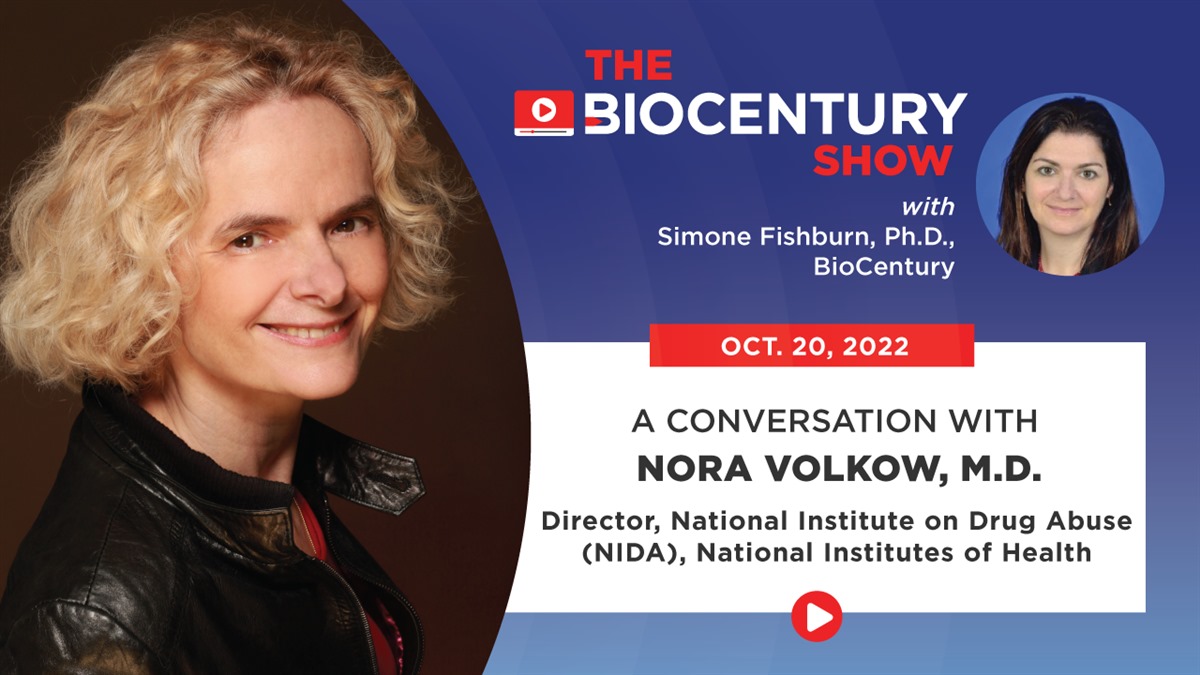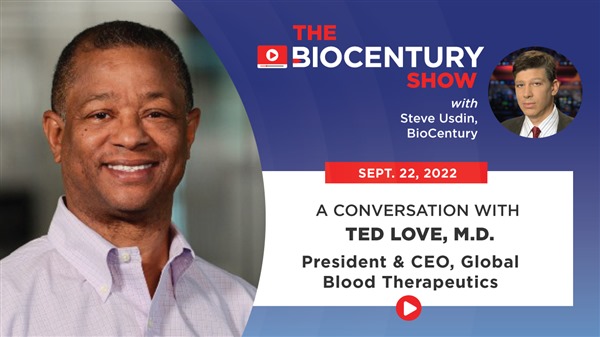Optimism vs obstacles: Volkow sees potential for progress on addiction disorders
Nora Volkow, director of NIH’s NIDA, says biology is advancing, but incentives needed to bring companies into the field
Nora Volkow, director of NIH’s National Institute on Drug Abuse, has plenty of reasons to be optimistic about the direction of research and treatment of addiction disorders, despite a series of structural and societal hurdles holding back progress.
On The BioCentury Show, Volkow addressed the fact that the field of drug addiction and substance use disorders faces obstacles that set it apart from other major unmet needs in medicine. Stigma has held back this public health emergency from receiving the kind of attention and investment that other areas receive, and knock-on effects have prevented companies from piling in, or governments from dedicating enough — or the right — resources.
A lack of appropriate reimbursement mechanisms is one of the key obstacles, according to Volkow, but if addressed, it could trigger substantial change.
Compared with other areas in medicine, addiction disorders are uniquely difficult for unaffected individuals to understand, said Volkow. It reflects the difficulty in understanding how drugs interact with and disrupt normal brain function, “because we’ve never been there. We look at things with our own experiences,” she said.
Major progress has been made in establishing substance use and addiction, its most severe form, as a disease, in large part through demonstration of biological changes in the brains of individuals who are addicted, and the connection of these changes with behavior. Volkow believes that has also produced an opportunity to create a structure for reimbursement, and to recognize the need to screen and prevent substance use disorders.
“Even if we recognize it as a disorder, we do not consider it as valuable as other disorders, or as meritorious,” said Volkow.
Though more money is needed for research and clinical trials, money alone will not solve the crisis. And industry, while essential for creating therapies from emerging innovations, has little incentive to get involved because insurance policies do not reward them for the investment.
“We do the research, and people can make the drugs, but then they’re not prescribed,” said Volkow. “If you don’t have policies that will protect and provide mechanisms for ensuring reimbursements for these treatments, we’ll fail,” said Volkow. “Many clinicians don’t want to provide treatment for opioid use disorders because the reimbursement they’ll get from Medicaid is inadequate.”
Clinical trials could see progress, however, said Volkow, because the increased use of virtual technologies during the pandemic for engaging individuals in screening and treatment has offered new ways of reaching individuals, and access to populations who were previously very difficult to recruit. “We need to change our models for recruitment from the classical, where you go to a treatment center, to one where we go out into the community.” Unlike other diseases, most individuals with addiction disorders don’t seek out treatment.
The amount of innovation in the biology of substance use disorders is one of Volkow’s greatest sources of optimism. Increased understanding of neuroplasticity at a molecular level is leading to new targets and mechanisms for intervention, she said, noting the roles of glutamate and orexin receptors as areas of active research. In addition, new neuromodulation technologies can stimulate or inhibit certain areas of the brain to counter urges to take a drug, or prevent obsessive thinking that leads to drug-taking. “These are all very different ways than the standard targeting of the mu opioid receptor with buprenorphine, methadone or naltrexone,” said Volkow.
The BioCentury Show is sponsored by pathfinder partner Sofinnova Investments and the upcoming BioCentury-BayHelix East-West Summit. For information on how to sponsor The BioCentury Show and the BioCentury This Week podcast, please contact Sarah Shoaff at sarah.shoaff@biocentury.com.
BCIQ Company Profiles
BCIQ Target Profiles




